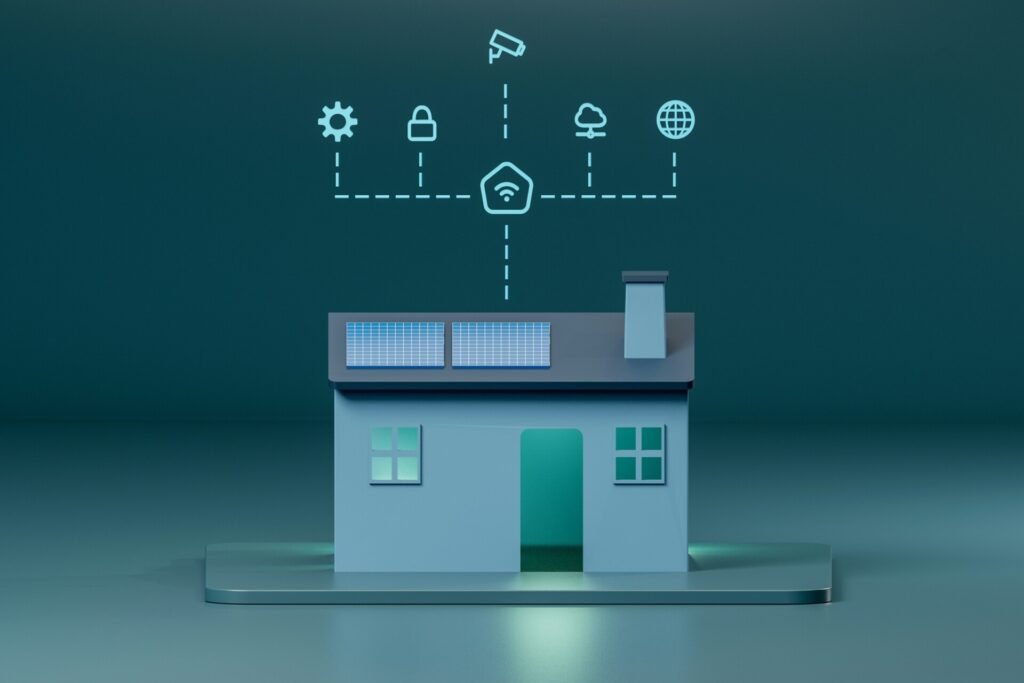The concept of “real estate” has really expanded lately, moving beyond just houses, offices, and plots of land. Enter “digital real estate”—a term that’s gaining a lot of buzz in the world of online investments and is quickly becoming a key asset class for those looking to diversify their portfolios.
So, what exactly is it? How does it compare to the traditional kind? And why is it becoming such a big deal? I’ll tell you why this shift is worth paying attention to and how you can get involved.
What is Digital Real Estate?

It refers to owning virtual assets and properties that exist in the digital world. This can include anything from domain names, websites, blogs, and e-commerce stores to digital billboards, social media profiles, and virtual land in online games or metaverses.
Think of it this way: instead of owning a piece of land in a bustling city, you could own a highly trafficked website or a prime piece of digital land in a virtual world like Decentraland or The Sandbox. These digital assets have value because they attract visitors, generate income through advertising or transactions, and serve as a platform for digital businesses.
How Does Digital Real Estate Differ from Physical Real Estate?
You might be wondering, “How is it different from the physical kind I’m familiar with?” While both types of real estate involve buying and holding assets that can increase in value, there are some key differences:
- Tangible vs. Intangible: Physical real estate consists of tangible assets like buildings and land. Real estate, on the other hand, is intangible. It exists only online, yet it can be just as valuable—or even more so—depending on the demand and its ability to generate revenue.
- Accessibility and Cost: Unlike physical real estate, which often requires substantial upfront capital and is limited by geographic location, it is far more accessible. You can start with a relatively small investment, and there are no physical boundaries. Your audience or customers can be from anywhere in the world.
- Maintenance and Overheads: Physical properties require ongoing maintenance, property taxes, insurance, and utilities. Digital properties require far less upkeep; for example, maintaining a website might involve costs like hosting, security, and domain renewal, but these are typically lower than the costs associated with physical properties.
- Liquidity and Transaction Speed: Buying or selling physical real estate can be a lengthy process, often taking months. In contrast, digital assets can be traded quickly, sometimes within minutes or hours, providing greater liquidity and flexibility for investors.
Understanding the Fundamentals

Alright, let’s break down the basics of real estate digital marketing. If you’re new to this, don’t worry—understanding the fundamentals is easier than you might think. We’ll cover some key concepts and terminology, explore the different types of digital assets that qualify as real estate, and look at how this field has evolved and grown over time.
Key Concepts and Terminology
First up, let’s get familiar with some important terms:
- Digital Assets: These are any online properties you can own and manage. This includes things like domain names, websites, blogs, and social media profiles. Think of them as the digital equivalent of physical properties.
- Domain Names: These are like the addresses for your online properties. A good domain name is catchy and easy to remember, making it valuable for driving traffic to your site.
- Websites and Blogs: Just like a physical store or office, these are your digital spaces where you can build an audience, generate revenue, and create content.
- Virtual Land: In the world of metaverses and online games, virtual land is a piece of digital property you can buy, sell, and develop.
Understanding these terms will help you navigate the digital real estate investing landscape more effectively.
Types of Digital Real Estate Investments
It offers a diverse range of investment opportunities, each with its own unique appeal and potential.
A significant shift towards digital tools is evident, with 97% of homebuyers using the internet for their searches and 76% utilizing mobile devices.
This reflects a growing reliance on technology in the buying and selling process. If you’re looking to dip your toes into this exciting field, here’s a breakdown of the most intriguing types of digital real estate investments you might consider:
1- The Cornerstone of Real Estate
Websites are like the flagship properties in the real estate market. Owning a well-designed, high-traffic website can be incredibly rewarding. Think of it as having a prime piece of real estate on the internet.
With the right niche and strong content, a website can attract visitors, generate revenue through ads or affiliate links, and even build a loyal audience. From personal blogs to corporate hubs, the possibilities are endless. Investing in websites isn’t just about owning a domain; it’s about building and nurturing an online presence that can grow and evolve.
2- Domain Names: Virtual Land with Potential Value
Imagine domain names as the digital equivalent of prime land parcels. A catchy, memorable domain can be a valuable asset, especially if it aligns with a trending topic or industry. Investing in domain names involves identifying and purchasing domains that have the potential to appreciate in value.
This can be akin to buying land in a rapidly developing city—certain names are destined to become highly sought after. It’s a game of prediction and timing, but with the right strategy, domain names can turn into profitable assets.
3- E-commerce Stores and Platforms
E-commerce is a booming field, and owning an online store can be incredibly lucrative. These digital properties allow you to sell products or services directly to consumers, often with the added benefit of global reach.
Whether you’re looking to invest in an established e-commerce platform or build one from scratch, the potential for profit is significant. E-commerce stores can generate income through direct sales, subscriptions, and even partnerships. It’s an exciting space with endless opportunities for innovation and growth.
4- Virtual Properties in the Metaverse
The metaverse is like the Wild West of digital estate. Virtual worlds such as Decentraland or The Sandbox offer opportunities to buy, sell, and develop digital land. These virtual properties can be customized and monetized in various ways, from creating virtual shops and galleries to hosting events and social gatherings.
As these digital worlds continue to expand, the value of virtual properties is expected to grow, making it an intriguing area for investors interested in the future of digital interaction.
5- Mobile Apps and Digital Tools
Mobile apps and digital tools are rapidly becoming essential components of modern life. Investing in these digital assets can be highly profitable, as they often serve specific needs or niches.
Whether it’s a productivity app, a game, or a unique digital tool, the right app can attract a large user base and generate substantial revenue through in-app purchases, subscriptions, or advertising. The key is to identify trends and gaps in the market, creating solutions that resonate with users.
How to Get Started with Digital Real Estate
Here’s a quick guide on digital real estate strategy to help you get started:
1- Identifying Your Investment Goals and Risk Tolerance
Before you jump in, take a moment to think about your goals. Are you looking for steady passive income, high returns, or long-term growth? Also, consider how much risk you’re comfortable with. Some digital assets, like domain names, are lower risk but might offer slower returns, while others, like virtual land, can be more speculative.
2- Choosing the Right Type
Next, decide which type of real estate aligns with your goals. Websites, domain names, e-commerce stores, virtual properties, and mobile apps all have different benefits. Research each type to understand which best fits your interests and investment strategy.
3- Setting Up a Budget and Investment Plan
Create a budget that outlines how much you’re willing to invest and how you plan to allocate your funds. Remember to account for initial purchase costs and any additional expenses, like maintenance or marketing. Having a clear plan will help you stay on track and make informed decisions.
4- Building Basic Technical and Market Knowledge
Lastly, equip yourself with some basic knowledge. Learn about the technical aspects of managing digital assets and stay updated on market trends. This will help you make smarter investment choices and navigate the digital landscape more effectively.
Investing Tips for Beginners
- Start Small: Begin with low-cost investments like domain names or small websites.
- Do Your Research: Understand market trends and the potential of different digital assets.
- Diversify: Invest in various types of digital estate to spread risk.
- Focus on Quality: Choose assets with good potential for growth and strong market demand.
FAQs
How to Invest in Digital Real Estate
- Identify Opportunities: Look for valuable domain names, websites, e-commerce platforms, or virtual properties.
- Evaluate Assets: Assess the potential return on investment, traffic, and revenue.
- Make a Purchase: Buy the asset through online marketplaces or directly from sellers.
- Manage and Grow: Optimize and develop your digital property to increase its value and revenue.
What Skills Do I Need to Invest in Digital Real Estate?
Basic skills include understanding digital marketing, website management, and familiarity with domain registration and online marketplaces.
How Much Money Do I Need to Start in Digital Real Estate?
You can start with as little as $10-$300 for domain names or small websites. Larger investments, like premium domains or established websites, require more.
Can Digital Real Estate Be a Passive Income Source?
Yes, it can generate passive income through ad revenue, affiliate marketing, and subscription models once the assets are established.
Is Digital Real Estate Investing Suitable for Everyone?
It may not be for everyone. It requires a basic understanding of digital tools, market trends, and sometimes a willingness to manage and grow online assets.
What Are the Best Platforms for Real Estate Transactions?
Popular platforms include GoDaddy for domains, Flippa for websites, and OpenSea for virtual land in the metaverse.












